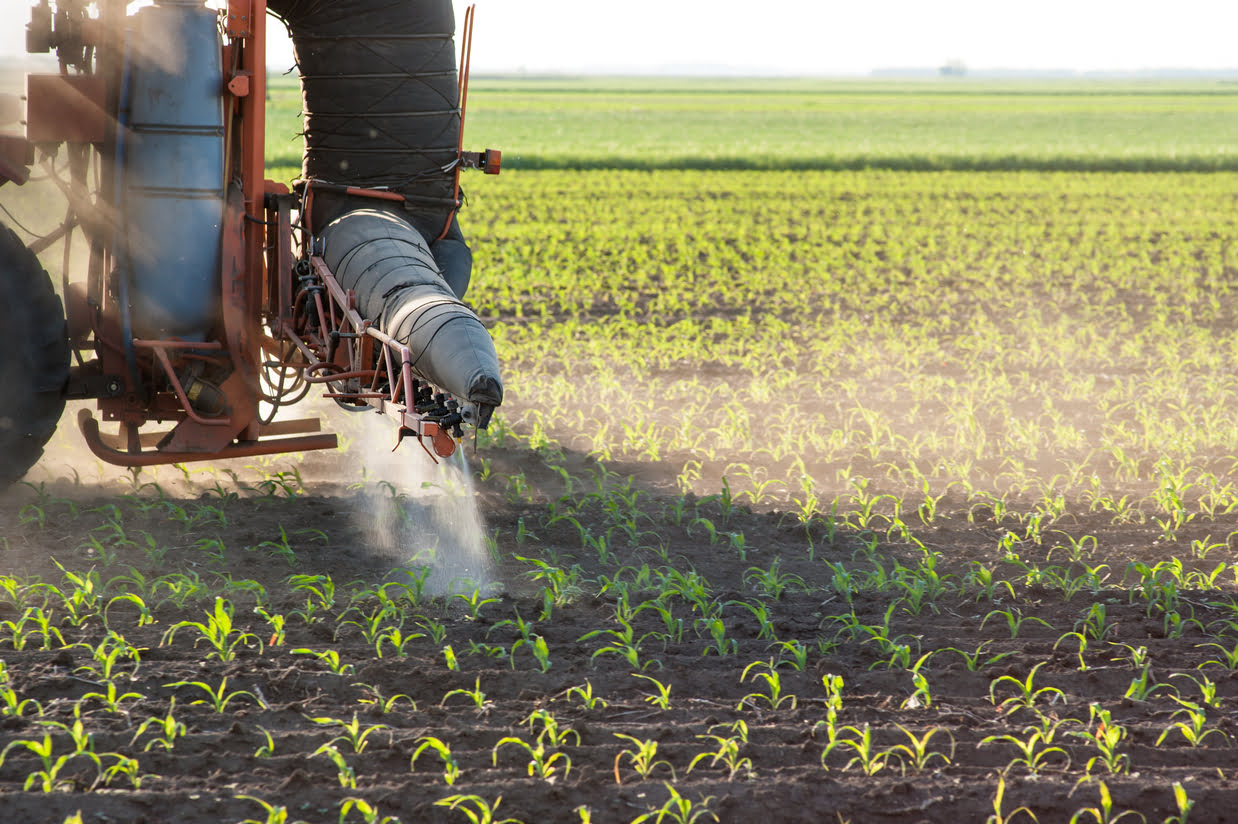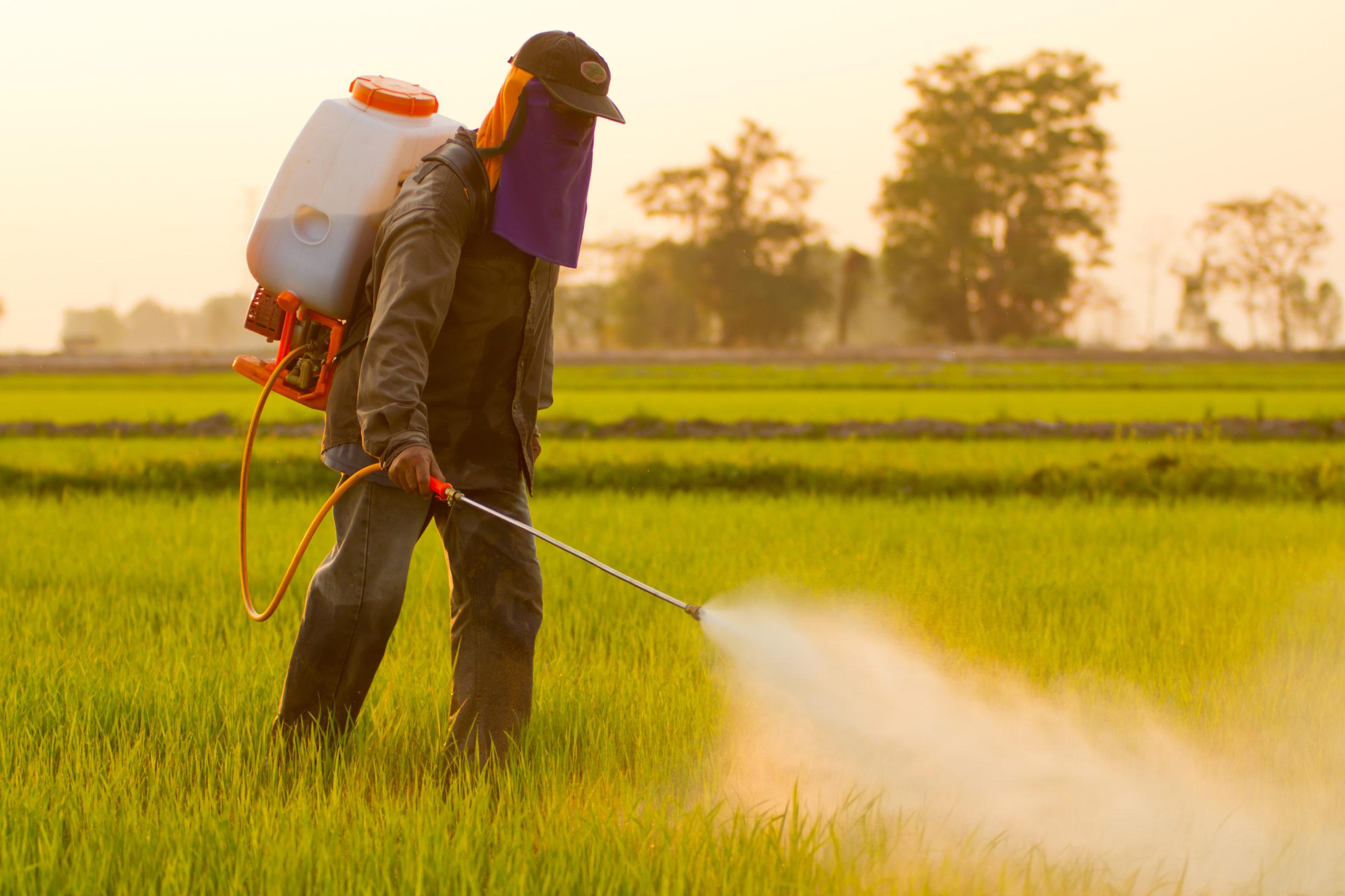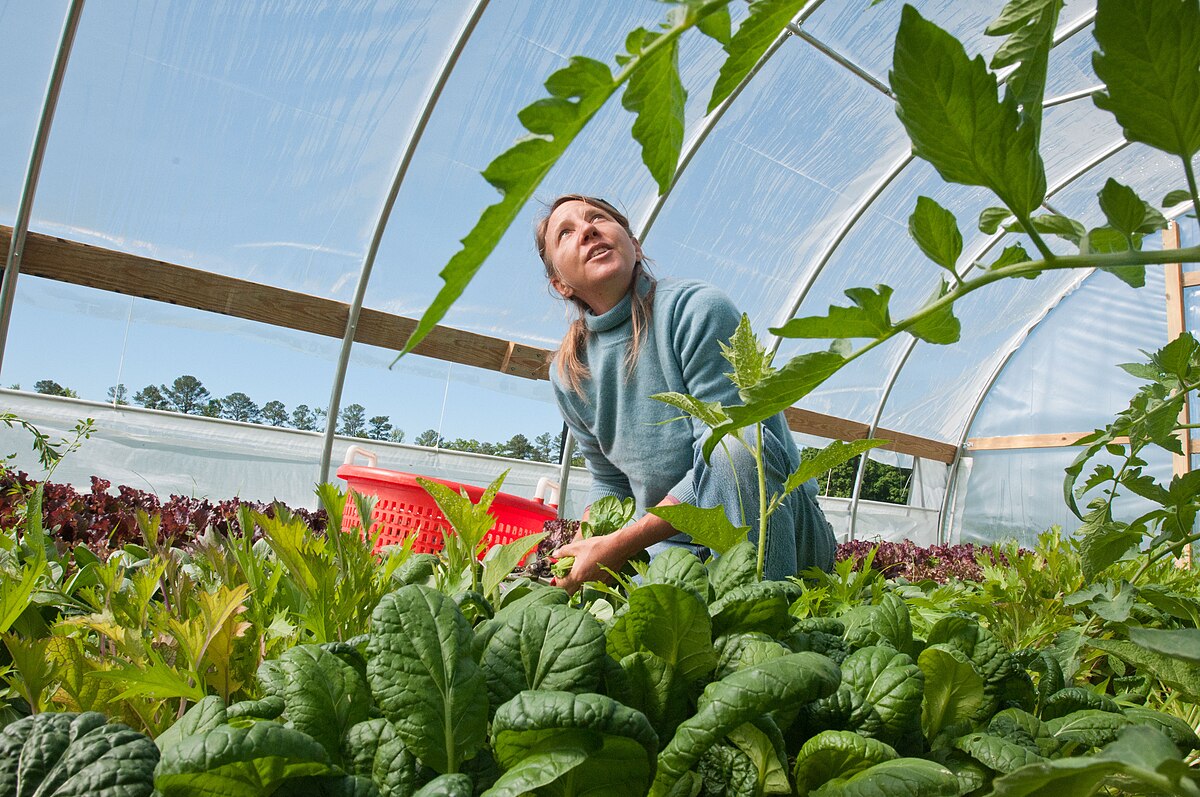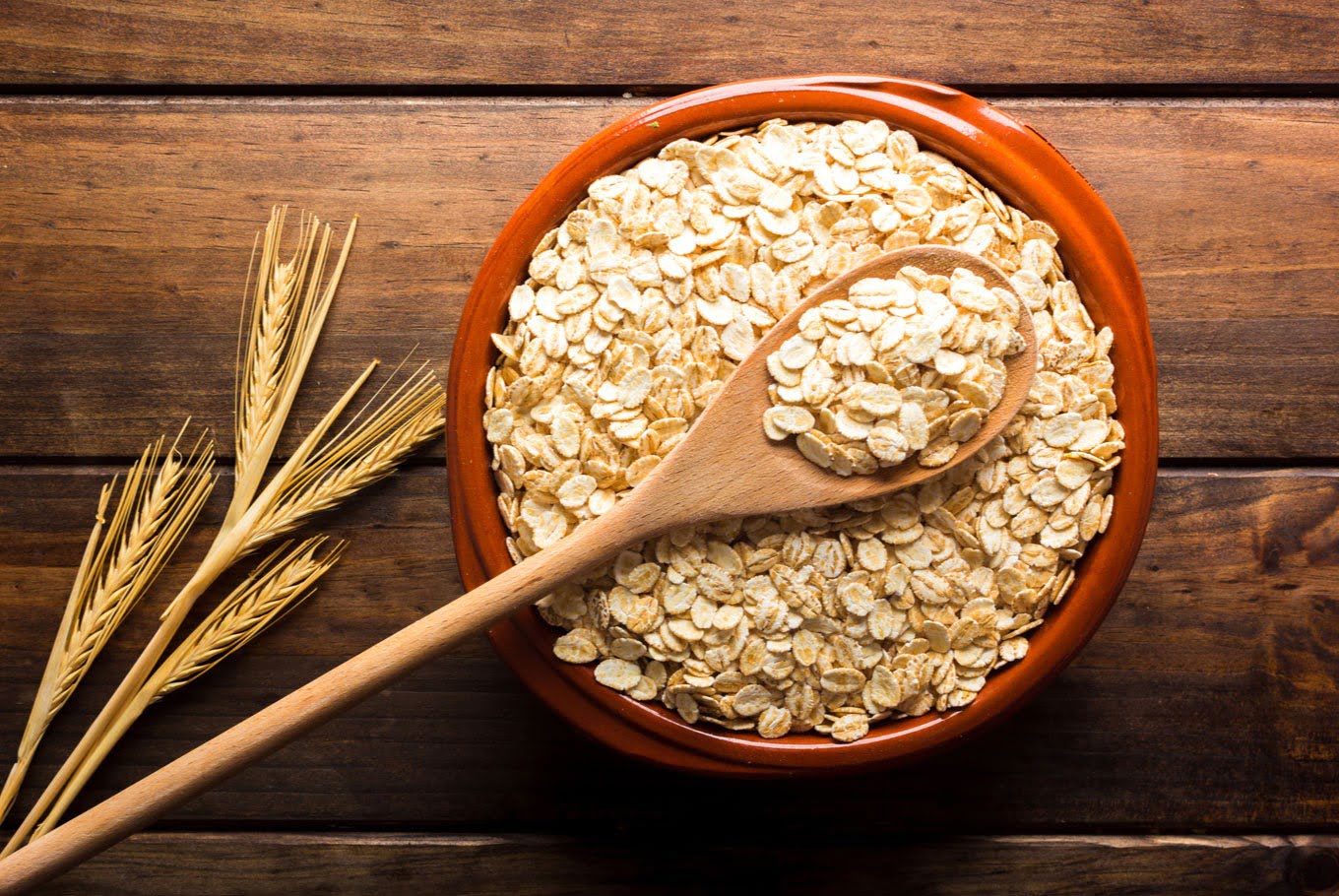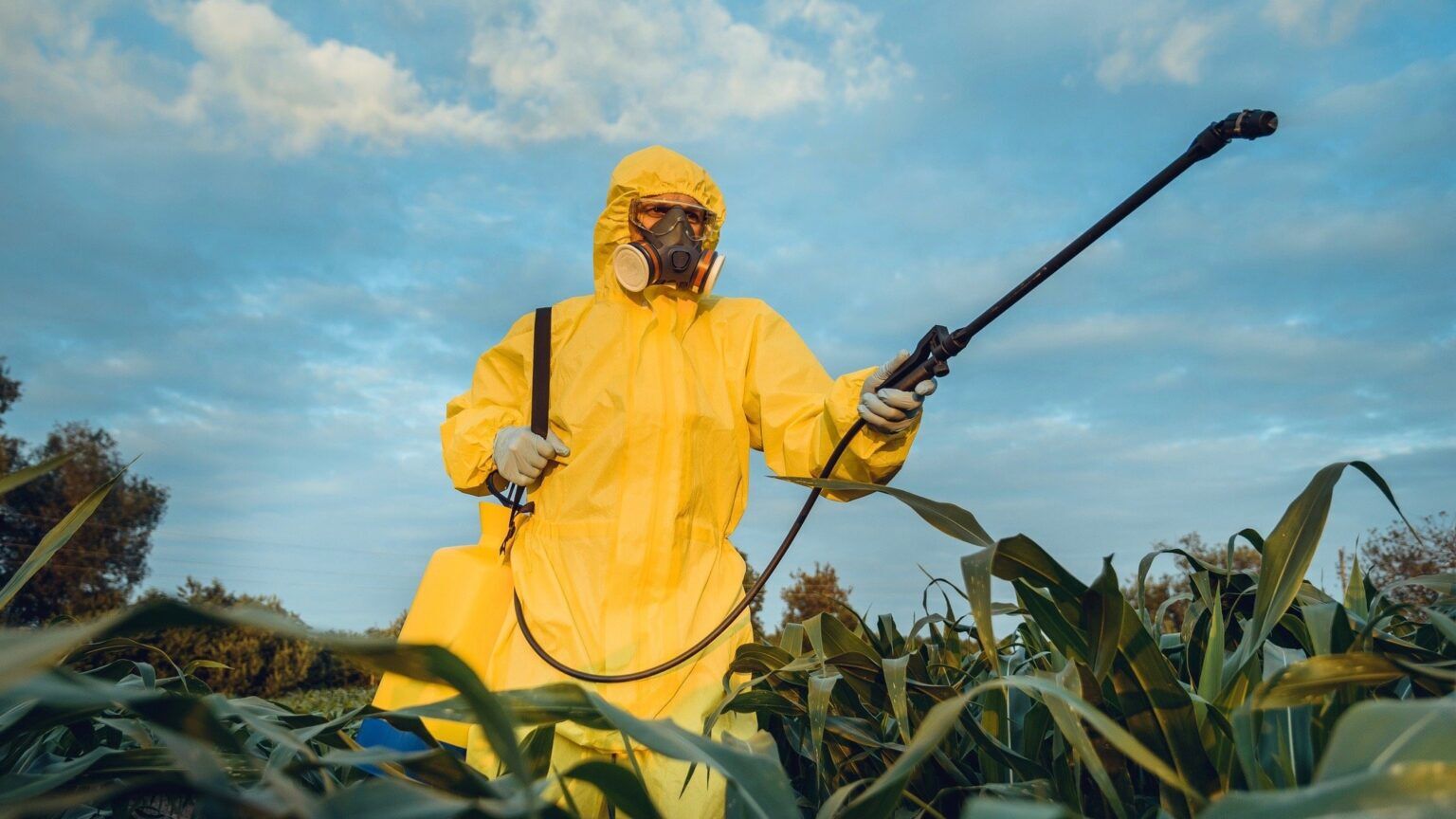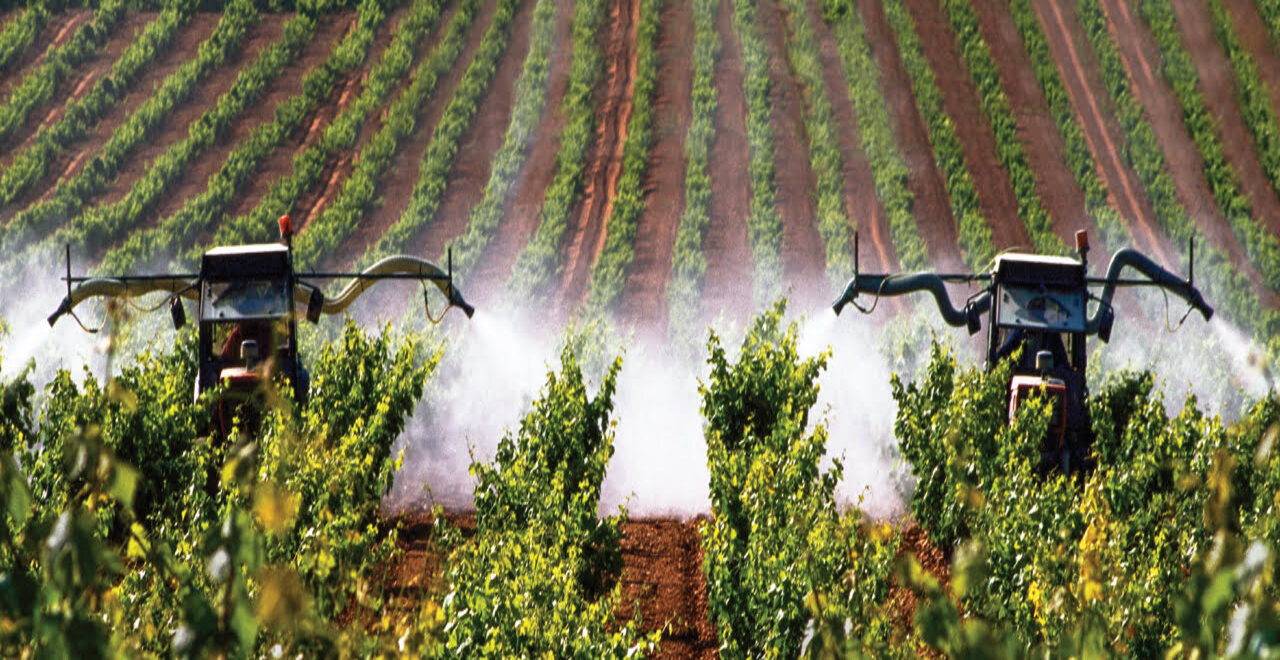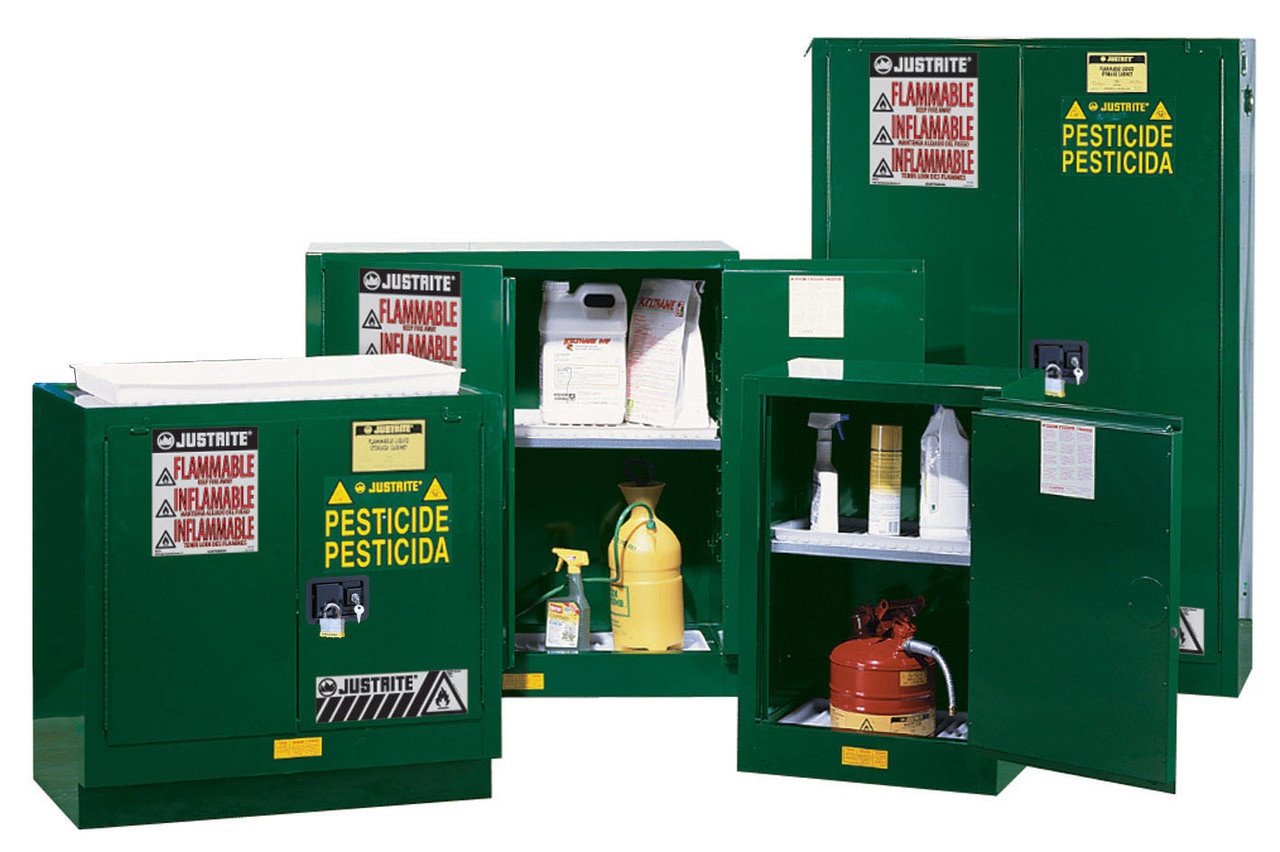Home>Gardening News and Trends>Latest News>What Are Natural Pesticides
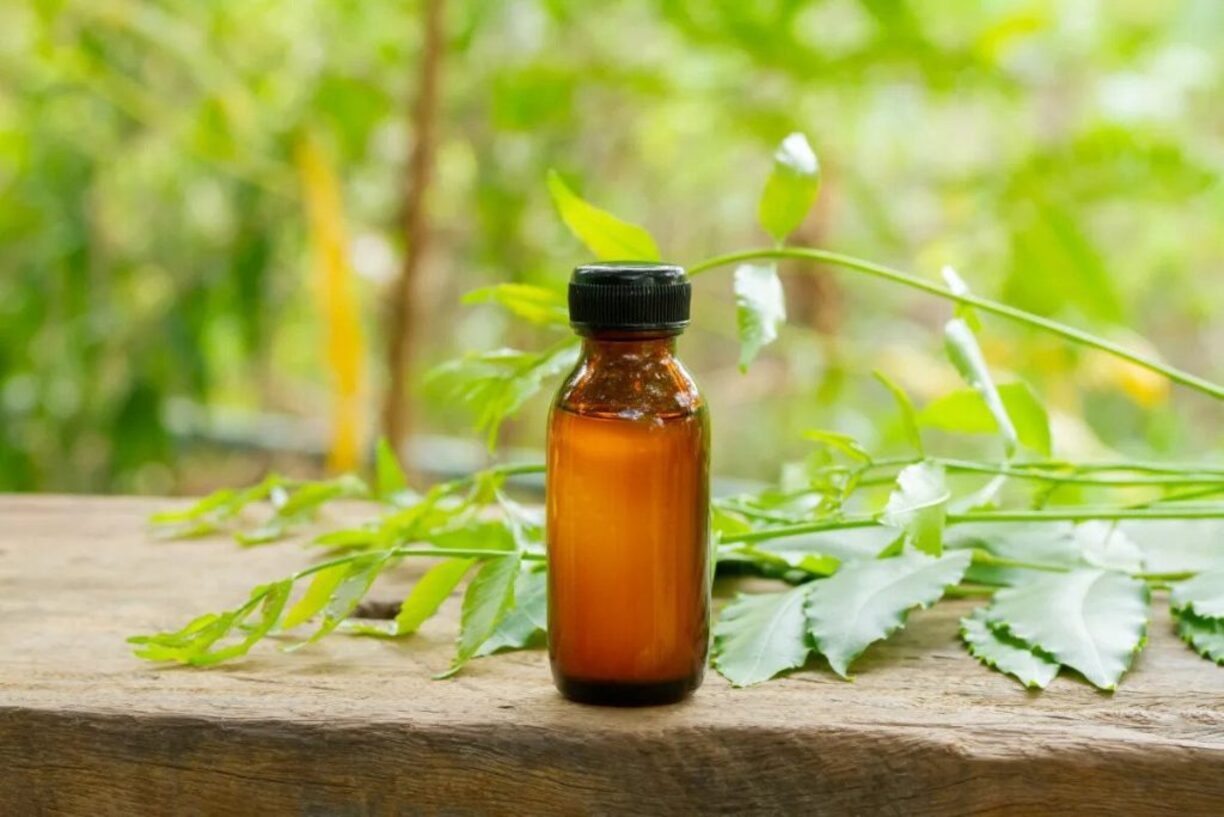

Latest News
What Are Natural Pesticides
Modified: January 22, 2024
Stay updated with the latest news on natural pesticides. Learn about the benefits, effectiveness, and eco-friendly alternatives in our comprehensive guide.
(Many of the links in this article redirect to a specific reviewed product. Your purchase of these products through affiliate links helps to generate commission for Chicagolandgardening.com, at no extra cost. Learn more)
Table of Contents
- Introduction
- Definition of Natural Pesticides
- Common Types of Natural Pesticides
- Benefits of Using Natural Pesticides
- Drawbacks and Limitations of Natural Pesticides
- How to Use Natural Pesticides Effectively
- Safety Precautions when Using Natural Pesticides
- Environmental Impact of Natural Pesticides
- Conclusion
Introduction
Welcome to the world of natural pesticides! If you have an interest in gardening, farming, or simply want to live a more eco-friendly lifestyle, understanding what natural pesticides are and how they can benefit you is essential. In this article, we will explore the concept of natural pesticides, the common types available, their benefits, drawbacks, and how to use them effectively.
Natural pesticides, as their name suggests, are substances derived from natural sources that are used to control pests and diseases in plants. They are a safer alternative to synthetic pesticides, which often contain harmful chemicals that can have adverse effects on both the environment and our health.
With the growing concern for the impact of synthetic pesticides on the environment, there has been a surge in the popularity of natural alternatives. Natural pesticides offer a more sustainable and environmentally friendly approach to pest management, while still effectively protecting crops and plants from damage.
The use of natural pesticides is not limited to large-scale agriculture. They can also be utilized by home gardeners to address common garden problems such as aphids, caterpillars, fungi, and more. Whether you have a small backyard garden filled with flowers or a vegetable patch, natural pesticides can help you maintain healthy plants without compromising the well-being of the environment or your own.
In the following sections, we will delve deeper into the various types of natural pesticides available, their benefits, drawbacks, and important considerations for their effective use. Let’s embark on this journey to discover the power and potential of natural pesticides.
Definition of Natural Pesticides
Natural pesticides are substances derived from natural sources that are used to control pests and diseases in plants. Unlike synthetic pesticides, which are chemically engineered, natural pesticides are derived from plants, animals, minerals, or other naturally occurring substances. They offer a more eco-friendly and sustainable approach to pest management.
These pesticides work by disrupting the life cycle or physiology of pests, inhibiting their ability to feed, breed, or cause damage to plants. They can be used in various forms, including sprays, powders, oils, or even as biological control agents, such as predatory insects or bacteria.
One of the distinguishing features of natural pesticides is their limited persistence in the environment. They tend to break down more quickly and have a lower risk of leaving toxic residues compared to synthetic pesticides. This makes them a preferred choice for those who prioritize environmental sustainability and the preservation of beneficial insects and wildlife.
It is important to note that while natural pesticides are generally considered safer than their synthetic counterparts, they can still have an impact on non-target organisms if not used properly. Therefore, it is crucial to follow the recommended application guidelines and consider factors such as timing, dosage, and target pests to minimize any unintended harm.
Furthermore, it is important to understand that the term “natural” does not automatically guarantee safety. Some natural substances can still be toxic or cause harm when used inappropriately. It is essential to read and follow the instructions provided by the manufacturer and consult with experts or professionals when necessary.
In summary, natural pesticides are derived from natural sources and provide an alternative method for controlling pests and diseases in plants. They are typically considered safer and more environmentally friendly compared to synthetic pesticides, although caution must be exercised when handling and applying them. Let’s explore the various types of natural pesticides available in the next section.
Common Types of Natural Pesticides
Natural pesticides come in a variety of forms, each with their own unique properties and target pests. Here are some common types of natural pesticides:
- Botanical Pesticides: Botanical pesticides are derived from plants and their extracts. Examples include neem oil, pyrethrin, and rotenone. These pesticides are effective against a wide range of pests, including insects, mites, and fungi. Neem oil, for instance, acts as an insect growth regulator and repels pests, while pyrethrin is derived from chrysanthemum flowers and has contact insecticidal properties.
- Microbial Pesticides: Microbial pesticides contain living microorganisms, such as bacteria, viruses, or fungi, that can control pests. Bacillus thuringiensis (Bt) is a commonly used bacterial pesticide, particularly effective against caterpillars and mosquito larvae. Beneficial fungi like Trichoderma and Beauveria bassiana can be used to combat plant diseases caused by fungal pathogens.
- Mineral-Based Pesticides: Mineral-based pesticides use naturally occurring minerals, such as sulfur, copper, or diatomaceous earth, to control pests. Sulfur is effective against powdery mildew and mites, while copper-based compounds are commonly used to prevent fungal diseases. Diatomaceous earth, derived from fossilized algae, works by physically damaging the pests’ exoskeletons.
- Insecticidal Soaps and Oils: Insecticidal soaps and oils are made from plant-derived fatty acids or oils like neem oil or horticultural oil. These pesticides work by suffocating insects or disrupting their cell membranes. They are particularly effective against soft-bodied insects such as aphids, mealybugs, and spider mites.
- Biological Control Agents: Biological control agents are living organisms, including predatory insects, parasitic wasps, and beneficial nematodes, which are used to control pest populations. Ladybugs, for example, feed on aphids, while parasitic wasps lay eggs inside pest larvae. These agents can help maintain a natural balance in the ecosystem and reduce the need for chemical interventions.
These are just a few examples of the wide range of natural pesticides available. Depending on your specific pest problem and desired level of ecological impact, different types of natural pesticides may be more suitable for your needs.
In the next section, we will explore the benefits of using natural pesticides and why they are gaining popularity among environmentally conscious gardeners and farmers.
Benefits of Using Natural Pesticides
Using natural pesticides offers a multitude of benefits, making them an attractive choice for those who are concerned about the environment, human health, and the long-term sustainability of agriculture. Here are some key advantages of using natural pesticides:
- Environmentally Friendly: Natural pesticides are derived from renewable resources and generally have lower toxicity levels compared to synthetic pesticides. They break down more quickly in the environment, reducing the risk of long-term pollution and harm to non-target organisms. By choosing natural pesticides, you can help preserve the delicate balance of ecosystems and contribute to the conservation of beneficial insects, birds, and other wildlife.
- Reduced Health Risks: Synthetic pesticides often contain harmful chemicals that can pose risks to human health, as well as the health of pets and livestock. Natural pesticides, on the other hand, are generally safer to use and have fewer known adverse effects. They are less likely to cause skin irritations, respiratory problems, or other health issues for those who come into contact with them.
- Residue-Free Produce: One of the significant advantages of natural pesticides is that they leave fewer residues on crops. Many synthetic pesticides leave behind chemical residues that can be harmful when consumed, even after thorough washing. By using natural pesticides, you can minimize exposure to harmful residues and enjoy produce that is cleaner and safer to consume.
- Target-Specific: Natural pesticides often target specific pests or diseases, allowing for a more targeted approach to pest management. This helps to preserve beneficial insects and pollinators while effectively controlling the pests that pose a threat to plants. By selectively targeting pests, natural pesticides can help maintain a more balanced ecosystem in your garden or farm.
- Organic Farming Compliance: For farmers or gardeners who follow organic farming practices, the use of natural pesticides is a requirement. Natural pesticides are allowed in organic farming systems as they align with the principles of sustainable agriculture and the avoidance of synthetic chemicals.
By harnessing the power of natural pesticides, you can effectively manage pests while minimizing harm to the environment, promoting human health, and producing high-quality, residue-free crops.
Although natural pesticides offer numerous benefits, it is important to consider their limitations and potential drawbacks. In the next section, we will explore the drawbacks and limitations associated with the use of natural pesticides.
Drawbacks and Limitations of Natural Pesticides
While natural pesticides have many advantages, it is important to be aware of their drawbacks and limitations. Understanding these aspects will help you make informed decisions when incorporating natural pesticides into your pest management strategies. Here are some key drawbacks and limitations of natural pesticides:
- Shorter Residual Effect: Natural pesticides tend to have a shorter residual effect compared to synthetic pesticides. Since they break down more quickly in the environment, they may require more frequent applications to maintain effective pest control. This can be time-consuming and may increase the overall cost of pest management.
- Specific Mode of Action: Natural pesticides often have a specific mode of action, targeting certain pests or diseases. This means that they may not work effectively against all types of pests or diseases encountered in your garden or farm. It is important to identify the specific pest or disease and select the appropriate natural pesticide for effective control.
- Variable Efficacy: The efficacy of natural pesticides can vary depending on various factors, including environmental conditions and the specific pest or disease being targeted. Some natural pesticides may not provide complete control, and multiple control measures may need to be employed simultaneously or in rotation to achieve desired results.
- Preventive Nature: Natural pesticides are often more effective in preventing pest infestations rather than controlling severe or established infestations. Regular monitoring and early intervention are crucial when using natural pesticides to prevent pest populations from reaching damaging levels.
- Reapplication after Rain: Natural pesticides are more prone to wash off with rain compared to synthetic pesticides. After heavy rainfall, it may be necessary to reapply natural pesticides to ensure continued control of pests and diseases.
It is essential to approach the use of natural pesticides with realistic expectations and a proactive mindset. Integrated Pest Management (IPM) practices, such as combining multiple pest control measures and monitoring pest populations regularly, can help overcome the limitations of natural pesticides and maximize their effectiveness.
In the next section, we will provide some tips on how to use natural pesticides effectively to optimize their performance and minimize any potential negative impacts.
How to Use Natural Pesticides Effectively
Using natural pesticides effectively requires proper application techniques and strategies. Consider these tips to optimize the performance of natural pesticides:
- Identify and Monitor: Proper pest identification is crucial to select the appropriate natural pesticide. Regularly monitor your plants for signs of pest damage or disease so that you can take prompt action when needed.
- Follow Instructions: Read and follow the instructions provided by the manufacturer for the specific natural pesticide you are using. Pay attention to the recommended dosage, application method, and intervals between applications.
- Timing: Apply natural pesticides when pests are most active. This will enhance the effectiveness of the treatment and minimize the impact on beneficial insects. Morning or evening hours are often the best time to apply natural pesticides, as it allows them to dry before the heat of the day.
- Targeted Application: Direct the spray or treatment specifically to the affected plants or areas, rather than applying it indiscriminately. This reduces the risk of exposure to beneficial insects, minimizes waste, and saves on costs.
- Consider Weather Conditions: Avoid applying natural pesticides during windy conditions, as it may cause the product to drift and affect unintended areas or organisms. Similarly, avoid spraying when rainfall is imminent, as it can wash away the pesticide.
- Rotate Pesticides: To prevent the development of pest resistance, rotate between different types of natural pesticides with different modes of action. This helps ensure that pests do not become immune to a specific pesticide over time.
- Protective Clothing and Equipment: When handling or applying natural pesticides, wear appropriate protective clothing, including gloves, safety goggles, and a mask if necessary. Keep children and pets away from treated areas until the pesticide has dried or settled.
- Proper Storage and Disposal: Store natural pesticides in their original containers, away from direct sunlight and extreme temperatures. Dispose of any unused pesticide or empty containers according to local regulations and guidelines.
Using natural pesticides effectively requires a proactive approach and attention to detail. By following these guidelines and incorporating integrated pest management practices, you can maximize the effectiveness of natural pesticides while minimizing any potential risks or negative impacts.
In the next section, we will discuss the safety precautions to keep in mind when using natural pesticides to ensure the well-being of yourself, others, and the environment.
Safety Precautions when Using Natural Pesticides
While natural pesticides are generally considered safer than synthetic alternatives, it is still important to take proper safety precautions when handling and using them. By following these safety measures, you can protect yourself, others, and the environment:
- Read Instructions and Labels: Carefully read and understand the instructions provided by the manufacturer on the pesticide label. Follow the recommended application rates, safety precautions, and storage instructions.
- Protective Clothing and Equipment: Wear appropriate protective clothing, such as gloves, long sleeves, pants, closed-toe shoes, and safety goggles, when handling and applying natural pesticides. This helps minimize the risk of skin irritation or exposure to the eyes.
- Avoid Inhalation and Ingestion: Avoid breathing in the spray mist or ingesting any natural pesticide. Consider wearing a mask or respirator, especially if working in an enclosed space or applying the pesticide in windy conditions.
- Keep Children and Pets Away: Keep children and pets away from treated areas until the pesticide has dried or settled. This prevents accidental exposure or ingestion.
- Proper Ventilation: Apply natural pesticides in well-ventilated areas to prevent the buildup of fumes or vapors. If applying indoors, open windows and use fans to ensure adequate airflow.
- Prevent Contamination: Avoid contaminating water sources, including ponds, streams, or wells, by not applying natural pesticides near them. This helps prevent potential harm to aquatic life and water quality.
- Proper Storage and Disposal: Store natural pesticides in a secure location, out of the reach of children and pets. Follow local guidelines and regulations for the proper disposal of unused pesticides or empty containers.
- Label Awareness: Keep natural pesticides in their original containers with intact labels. This ensures that you always have access to important information regarding the product and its safe use.
Remember, even though natural pesticides are considered safer, it is still crucial to handle them with care and respect. By following these safety precautions, you can minimize potential risks and safely enjoy the benefits of natural pest control.
In the final section, we will explore the environmental impact of natural pesticides and their role in sustainable agriculture.
Environmental Impact of Natural Pesticides
Natural pesticides are often hailed as a more environmentally friendly alternative to synthetic pesticides. Their use can have several positive impacts on the environment. However, it is important to understand that even natural pesticides can still have some degree of impact. Here, we will explore the environmental impact of natural pesticides:
- Reduced Chemical Pollution: Compared to synthetic pesticides, natural pesticides generally have lower toxicity levels and are less likely to leave harmful chemical residues in the environment. This helps reduce chemical pollution in soil, water, and air, promoting a healthier ecosystem.
- Preservation of Beneficial Insects: Natural pesticides are more target-specific, meaning they are designed to control specific pests while minimizing harm to beneficial insects such as bees, ladybugs, and butterflies. By using natural pesticides, you can help preserve these valuable pollinators and maintain biodiversity in your garden or farm.
- Conservation of Soil Health: Synthetic pesticides can have detrimental effects on soil health, such as reducing beneficial microbial activity and disrupting the natural nutrient cycling process. Natural pesticides, especially those derived from plant extracts or microbial sources, can be less damaging to the soil ecosystem, contributing to its long-term health and fertility.
- Safer Waterways: Natural pesticides, with their lower persistence and reduced potential for runoff, can help protect waterways from contamination. By minimizing the leaching of pesticide residues into streams, rivers, and groundwater, natural pesticides contribute to the preservation of aquatic ecosystems and the overall health of our water resources.
- Enhanced Ecological Balance: The targeted approach of natural pesticides allows for a more balanced ecosystem in gardens and farms. By effectively controlling pest populations without adversely affecting non-target organisms, natural pesticides contribute to a harmonious coexistence of plants, insects, and other wildlife.
While natural pesticides offer environmental benefits, it is important to note that their impact can vary depending on factors such as application rate, frequency, and formulation. It is crucial to use natural pesticides as part of an integrated pest management (IPM) approach, which includes practices like crop rotation, proper plant nutrition, and habitat preservation for beneficial insects.
By combining the use of natural pesticides with other sustainable farming or gardening practices, you can create a more resilient and ecologically friendly system that supports both crop productivity and long-term environmental health.
Now that we have explored the environmental impact of natural pesticides, let’s wrap up this article by summarizing the key points we have discussed.
Conclusion
Natural pesticides provide a safer and more sustainable approach to pest management in gardens and farms. Derived from natural sources, such as plants, microbes, and minerals, these pesticides offer several advantages over their synthetic counterparts. They are environmentally friendly, reducing chemical pollution and preserving beneficial insects. Natural pesticides also pose lower health risks, leaving fewer residues on produce and promoting organic farming practices.
While natural pesticides have their limitations, such as shorter residual effectiveness and specific target ranges, these can be overcome through proper application techniques and integrated pest management strategies. By following instructions, monitoring pests, and using targeted applications, the efficacy of natural pesticides can be optimized.
Safety precautions are essential when handling and using natural pesticides. Wearing protective clothing and equipment, preventing contamination of water sources, and proper storage and disposal practices ensure the well-being of both users and the environment.
The environmental impact of natural pesticides is generally positive, as they contribute to reduced chemical pollution, preservation of beneficial insects, conservation of soil health, and safer waterways. By incorporating natural pesticides into sustainable farming or gardening practices, a balanced ecosystem can be created, supporting crop productivity and long-term environmental health.
In conclusion, natural pesticides offer an effective, eco-friendly, and safer alternative to synthetic pesticides. Their use promotes sustainable agriculture, protects the environment, and ensures the production of healthy and residue-free crops. By embracing the power of natural pesticides, we can cultivate healthy gardens and farms while safeguarding the planet for future generations.
